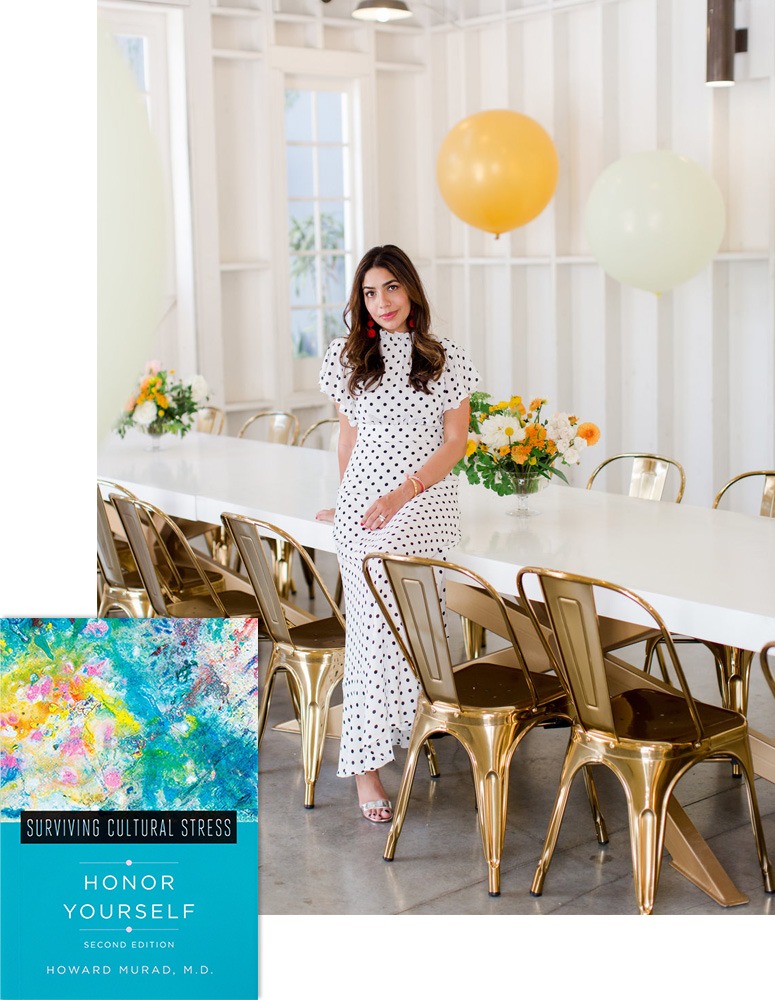Honoring Yourself: My Conversation with Dr. Deepika Chopra, the Optimism Doctor
Dr. Deepika Chopra holds a doctorate in clinical psychology, with a special interest in the mind-body connection, visual imagery, and strategies and methods for increasing optimism and resilience. She is known as “the Optimism Doctor” for her focus on cultivating more optimism, hope, resiliency, and success in the lives of others. In addition to her work with individuals and groups, she hosts a podcast called “Things Are Looking Up,” which explores “the ins and outs of being a human — without the perfectionism and toxic positivity.” In this podcast season finale, we spoke about the experiences and influences that fostered my own personal sense of optimism and the practices I recommend for cultivating your own.
As I told Deepika, my father was undoubtedly an important influence in my own psychological development. After all, it takes a certain amount of optimism to leave everything in your life behind and immigrate to a new country where you don’t even know the language—and to bring your wife and six children with you! My father made this decision and, to my knowledge, never regretted it.
Although our life in the United States was difficult—we were so poor that every member of the family had to work—my father always focused on the positive—even on the night he was beaten and robbed. I’m sure his example made a big impression on me. In fact, he was the inspiration for my Insight, “Why have a bad day when you can have a good day?” (He also lived to be 100!)
My mother, too, taught me invaluable lessons about resilience and optimism. One lesson was to not be too worried about what other people think. She always did her best—and if the results weren’t entirely successful, she didn’t get too upset with herself about it. She just tried to do better the next time. She taught me that it was OK to “fail.” You could have a disappointing experience and it didn’t mean that you were a failure. Her example was the inspiration behind my saying, “Be imperfect, live longer!”
With parents like this, it is perhaps no wonder that I and my siblings grew up to be optimists. I, in particular, felt comfortable taking risks that a more cautious or pessimistic person might not take. Not that I was reckless but, for example, I launched Murad Skincare company when I was 50 years old and most of my colleagues were telling me not to. “Why risk it?” they asked. “Play it safe and then retire!” But I wanted to help more people than the limited numbers I could see in a private medical practice, so I went forward anyway.
Reaching more people was the reasoning behind my first infomercial, too, which was a flop, losing me a lot of money. But I learned from the experience and tried again—and my second infomercial was a success.
As Deepika and I discussed, I believe the common thread that underlies all of these experiences is summarized in my Insight, “Honor yourself.” That is the foundational practice I recommend to my patients, to readers of my books, and to followers of my blog. Honoring yourself is the recognition that you are a unique individual, not a “one size fits all” replica. If you commit to honoring yourself, you will do what makes you happy, even if it isn’t popular. You will believe in your ability to succeed, even after a failure. You will ignore the advice of others when it isn’t appropriate for you. You will live the life that only you can create for yourself.
DISCLAIMER: The information provided on this site is intended for your general knowledge only and is not a substitute for professional medical advice or treatment for specific medical conditions. You should not use this information to diagnose or treat a health problem or disease without consulting with a qualified healthcare provider, who should also be consulted with any questions or concerns you may have regarding your condition.
